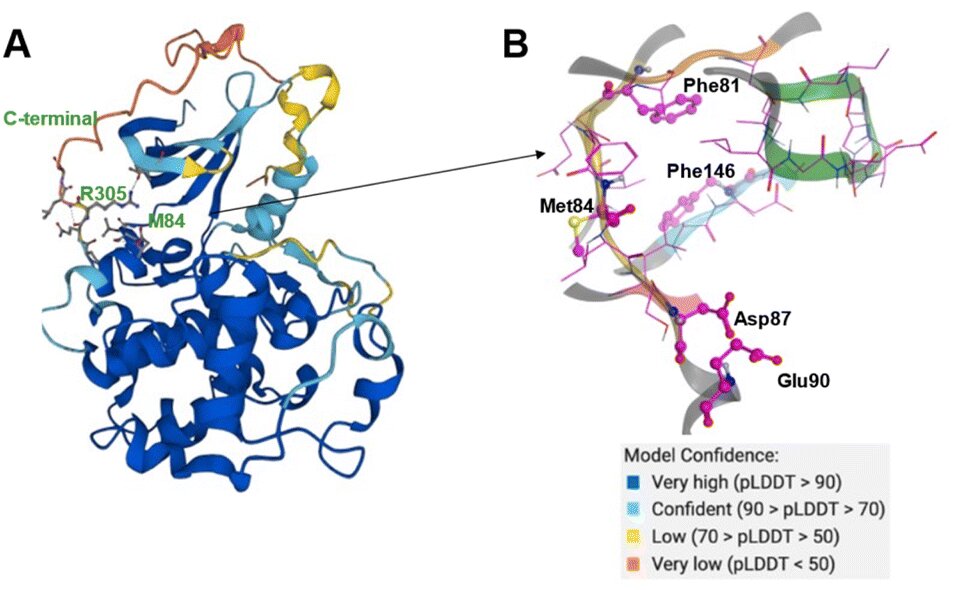Revolutionary AI-Engineered Cancer Drug Enters Human Trials, Paving the Way for Future Therapies

Google's AI Revolution: Human Trials Begin for AI-Engineered Cancer Drug
From Code to Clinic: The First Step in a New Era of Cancer Therapy
News has emerged that a major technology company is moving to a historic phase in its quest to combat cancer. For the first time, volunteers are being recruited to participate in human trials for a cancer medication designed using advanced computational models. This pharmaceutical breakthrough is the result of years of work by Isomorphic Labs, a cutting-edge enterprise launched by one of the world’s leading technology conglomerates. Central to this achievement is AlphaFold 3, a system that leverages artificial intelligence to predict how proteins and DNA fold and interact—a fundamental aspect of understanding disease at the molecular level.
AlphaFold 3 represents the culmination of intense scientific innovation. Initially developed to solve the incredibly complex problem of protein folding, this software has surpassed previous benchmarks, enabling researchers to forecast with high precision the structure of proteins as well as their interactions with other biomolecules, including potential pharmaceutical compounds. This advance is pivotal for oncology, where the differences in protein shapes can dictate the effectiveness of new therapies. By harnessing these insights, Isomorphic Labs has been able to move from theoretical models into the realm of drug discovery, and now, into the critical stage of human testing.
AlphaFold’s Breakthrough: Deep Learning Meets Molecular Medicine
The significance of AlphaFold’s technology lies in its ability to model the three-dimensional configurations of proteins and how these configurations change in the presence of DNA and small molecules. Drug design depends on accurate predictions at the atomic level; even minor inaccuracies can mean the difference between a safe, effective treatment and a failed therapy. What sets AlphaFold apart is its capacity not just to predict static structures, but to simulate the dynamic interplay between proteins and prospective drug candidates. In the case of cancer, this means pinpointing compounds most likely to disrupt malignant growth at its biochemical root.
The road to this point has involved critical partnerships and funding milestones. After unveiling AlphaFold 3, Isomorphic Labs forged collaborations with pharmaceutical giants and raised substantial investment to support its ambitious pipeline. The commitment underscores a widespread belief within the scientific and medical communities: that harnessing artificial intelligence for molecular biology could fundamentally reshape the timeline, cost, and probability of success for future medicines. With the first volunteers now being prepared for clinical dosing, the world watches as one of the deepest integrations of digital science and biology to date unfolds in real time.
Potential Beyond Cancer: The Long Horizon of AI-Driven Discovery
Experts view this clinical trial as a watershed moment, not just for cancer care but for the broader field of therapeutic innovation. While AlphaFold’s initial focus is on oncology, its engine has been designed to tackle many forms of disease. The underlying principle is that most illnesses, whether genetic or acquired, stem from aberrant or malfunctioning proteins. If artificial intelligence can decipher and manipulate these molecules with accuracy and efficiency, the implications span countless pathologies, from rare genetic disorders to common chronic conditions.
Researchers have contended that this AI-powered approach could lead to a future where the design and screening of medications become orders of magnitude faster and more reliable than today’s standards. Historically, new treatments require years of laboratory work followed by a grueling process of clinical validation, often with a success rate below ten percent. By integrating tools like AlphaFold, investigators hope to identify promising candidates early and reduce late-stage failures, thus accelerating the arrival of new treatments for patients who need them most.
A New Chapter in Precision Medicine
This pioneering project marks the first time that a therapy informed at every stage by advanced AI is entering human trials for a major disease. The scientific community is closely monitoring the process, as positive results could herald a new age in which AI is at the center of medical research and therapy development. With the biomedical landscape rapidly evolving, the convergence of machine learning, biology, and clinical science offers a potent opportunity to address some of humanity’s most formidable health challenges at their molecular core.
As the trials proceed, all eyes are on the volunteers and the technology that brought them this far. Success here could reshape industry expectations and open doors to faster, more accurate, and ultimately more personalized medical solutions. The journey from digital protein prediction to patient care is far from over, but the step now undertaken brings the world closer to a future where artificial intelligence and human ingenuity combine to rewrite what is possible in medicine.
